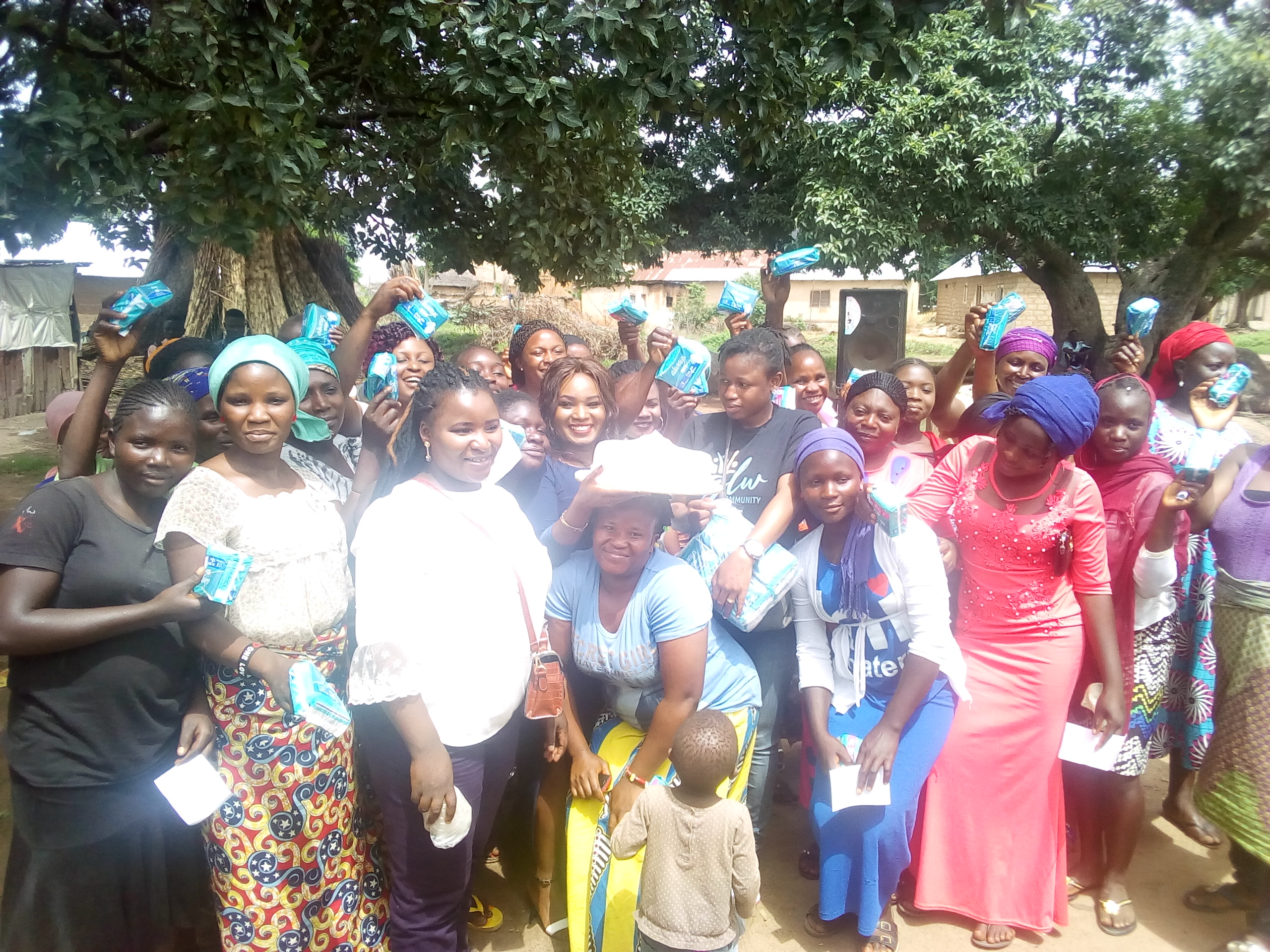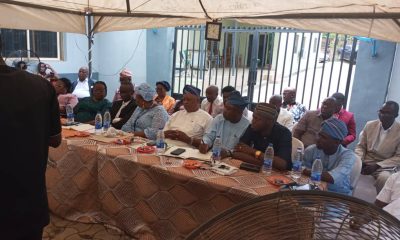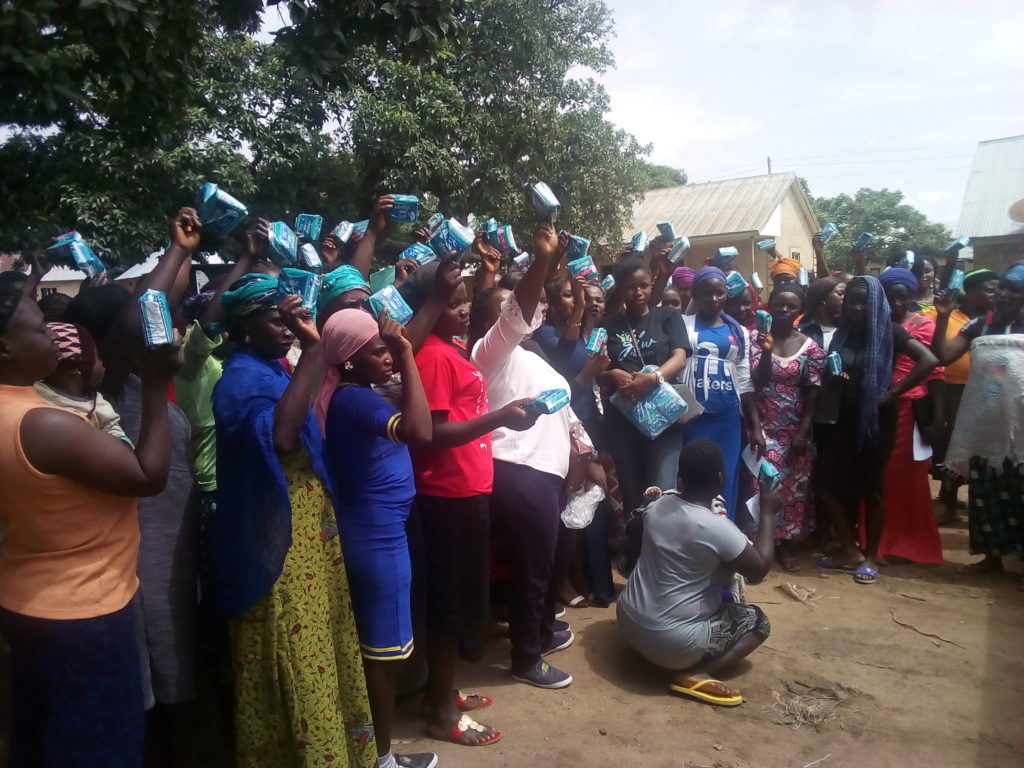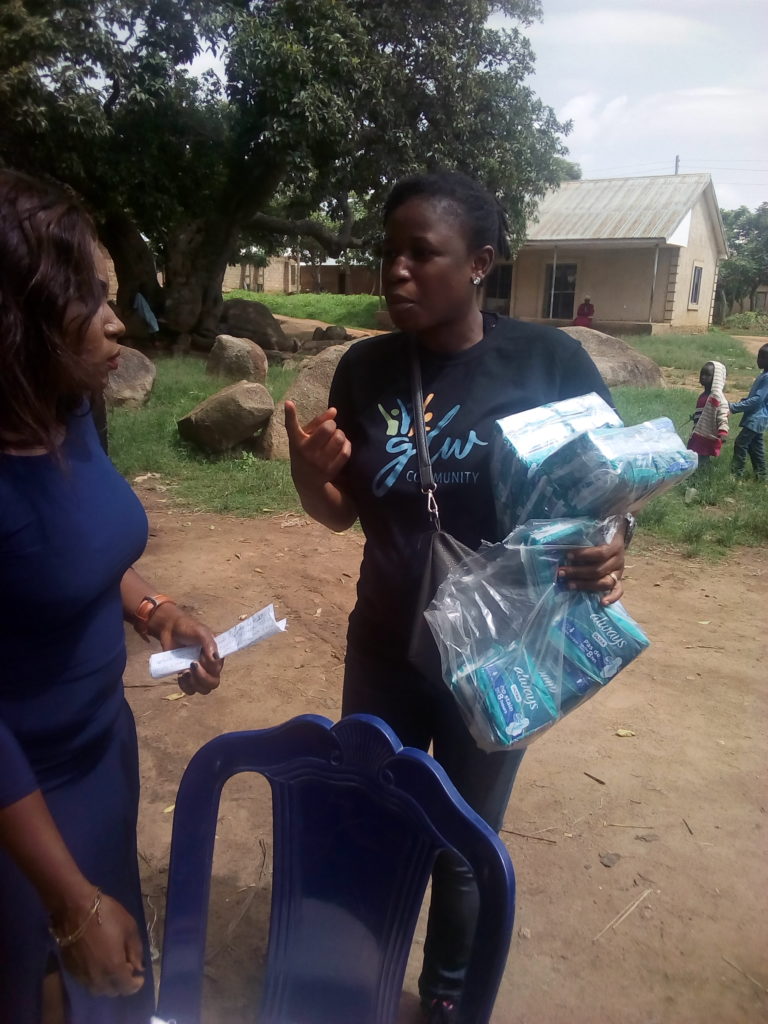News
NGO Creates Awareness on Menstrual Hygiene Management, Distributes Pads

A community-based Non Governmental organisation, Eunice Maina Community Outreach in collaboration with The Girls, Ladies, and Women Empowerment Initiative (The GLW) today, Wednesday, created awareness on Menstrual Hygiene Management and distributed free pads to young ladies and women in the community.
The event which took place at the Market Square in Panyam, Mangu Local Government Area of Plateau state had girls, ladies, women and few men in attendance.
The event which was organised to create awareness on the need for women to maintain good hygiene during their menstruation was organised to commemorate the birthday of the founder of Eunice Maina Community Outreach, Ms Eunice Maina who was born on June 12. She hailed from the community.
While appreciating God for the gift of life, Eunice said that she organised the event to sensitise women especially girls and young ladies on the need to maintain good menstrual hygiene management.
She said, “many young ladies and girls from the community lacks good menstrual hygiene management, hence, the need to create awareness on this societal problem”.
She appreciated the Chief Executive Officer of The Girls, Ladies and Women Empowerment Initiative (The GLW), Mrs Olonilua Morenikeji for the support especially, for donating the pads shared to girls, ladies and women at the event.
The guest Speaker, Com Jide Afolabi who spoke on menstrual hygiene management noted that taboos associated with menstruation, combined with an overall culture of silence around the topic, limit the ability of women and girls to fully and equally participate in society, undermining their overall social status and self-esteem.
In his presentationtion, he noted that the objective was to, “help break the silence and build awareness about the fundamental role that good menstrual hygiene management, MHM, plays in enabling women and girls to reach their full potential.
He said that the “challenge menstruating girls and women face is often less tangible than simply the availability of infrastructure, and is rooted in social norms and beliefs.
“In many cultures, menstruating women are considered impure and are systematically excluded from participating in every-day activities, such as education, employment, and cultural and religious practices.
“Moreover, the taboos and stigmas attached to menstruation lead to an overall culture of silence around the topic, resulting in limited information on menstruation and menstrual hygiene. Such misinformation can have ramifications on the health and dignity of girls and women.
“Given the multiple challenges women and adolescent girls face, it is evident that promoting menstrual hygiene management, MHM, is not only a sanitation matter; it is also an important step towards safeguarding the dignity, bodily integrity and overall life opportunities of women and girls.”
According to him, many girls and women face challenges with managing their periods safely.
In addition to persisting taboos, women and girls’ capacity to manage their periods is affected by a number of other factors, including limited access to affordable and hygienic sanitary materials and disposal options leaving many to manage their periods in ineffective, uncomfortable and unhygienic ways.
Afolabi said that menstruation is a normal biological process and a key sign of reproductive health, yet in many cultures, it is treated as something negative, shameful or dirty. The continued silence around menstruation combined with limited access to information at home and in schools results in millions of women and girls having very little knowledge about what is happening to their bodies when they menstruate and how to deal with it.
He defined Menstrual Hygiene Management as, ‘Women and adolescent girls using a clean menstrual management material to absorb or collect blood that can be changed in privacy as often as necessary for the duration of the menstruation period, using soap and water for washing the body as required, and having access to facilities to dispose of used menstrual management materials’.
Menstruation necessitates the availability of material resources to absorb or collect menstrual blood, facilitate personal hygiene and dispose of waste, ideally with adequate privacy. Women and girls in low-income settings have low awareness of hygienic practices and lack culturally appropriate materials for menstrual hygiene management, MHM, practices.
He noted that “Menstruation and associated activities are surrounded by silence, shame and social taboos that are further manifested in social practices that restrict mobility, freedom, and access to normal activities in Nigeria. For instance, preparing food, interacting with people or refraining from performing religious rituals are restrictions found in many cultures.
He encouraged girls, ladies and women to; Change your sanitary napkin every 4-6 hours; Wash yourself properly; Don’t use soaps or vagina hygiene products, Stick to one method of sanitation; Discard the sanitary napkin (pad) properly among others.
He concluded by urging all participants to join, “the campaign to create a world in which every woman and girl can manage her menstruation in a hygienic way – wherever she is – in privacy, safety and with dignity.”
Many dignitaries attended the elaborate event including the District Head of Panyam, His Royal Highness Da Aminu Derwam, Mishkaham Panyam.
-

 News4 days ago
News4 days agoOsun RAAMP Opens Bid For Road Constructions Statewide
-

 News2 days ago
News2 days agoFamily Of Gruesomely Murdered Pastor Cries For Justice
-

 News2 days ago
News2 days agoCapacity Building: OHIS Organizes Retreat For New Board Members
-

 News19 hours ago
News19 hours agoJust In: Nigerian Governor Dethrones 15 Traditional Rulers, Reinstates 7





